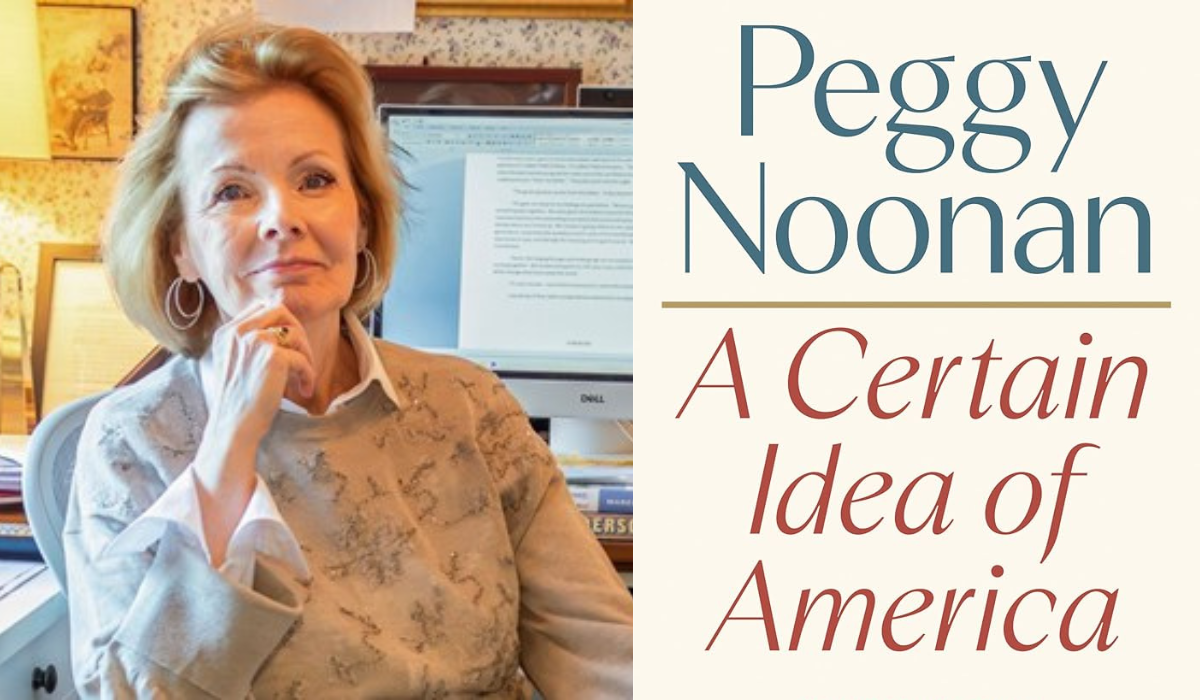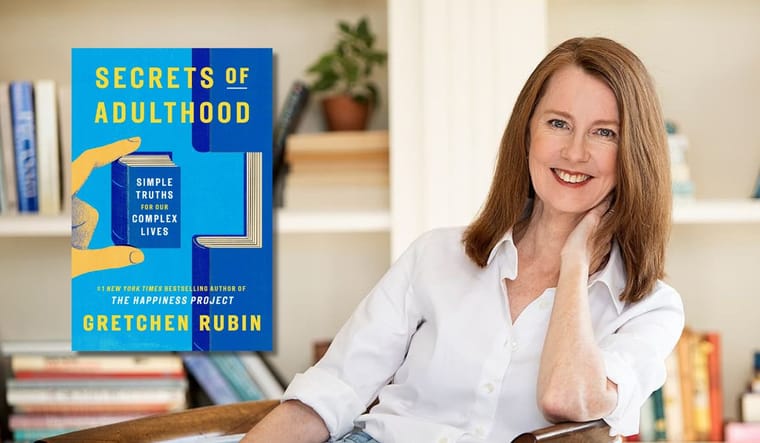Renowned Columnist Peggy Noonan Offers Hope and Insights About the Continuing Miracle That Is America
Peggy Noonan read Charles de Gaulle’s memoir many years ago, but she’s never forgotten his opening line: “All my life, I have had a certain idea of France.”
That sentence struck Noonan. “I’ve remembered that line for decades because after reading it I immediately thought, I’m exactly the same way in that I’ve always had a certain idea of America,” says Noonan. “And it is an idea that actually just begins with love, with appreciation, with the sense that America is—and has been in history—something special.”
In her new book, A Certain Idea of America, the historian and Pulitzer Prize-winning columnist for The Wall Street Journal shares more about her enduring faith in our country and makes a strong case for why its ideals are worth protecting. This week, The Sunday Paper sat down with Noonan for her perspective on our recent election and its aftermath, and why she’ll never lose faith and hope in what she calls “our continuing miracle, America.”
A CONVERSATION WITH PEGGY NOONAN
We just had a consequential election. How are you feeling in its wake?
There’s a little split within my nature: Long term, I am a pessimist. But short term, I wake up most days and I’m in a pretty darn good mood. So, it’s hard for me to connect my long-term thoughts and their implications with my short-term experience of life. That’s a complicated and elaborate way of saying, I feel fine.
I am not a Trump supporter, but I had a feeling this might be coming. I had a feeling that the American people were about to choose a path, as opposed to a person, and I’m not shocked by the path that they have chosen.
My thought—at least for the short term—is this: Hold on to your hat. Big history keeps happening.
What would you say to those who are worried about America right now?
The first thing I’d say is that it’s always good to remember that if you’re worried, the other side is worried too—they’re just worried about different things.
We constantly forget in our euphoric wins and painful, dreadful, extinguishing defeats that no victory is forever, and no defeat is forever. If you are upset now with how things are politically in America, there are things you can do.
First, just absorb it. Give yourself a little time to absorb.
Second, do not stop fighting for what you think is right.
Third, remember this is a democracy. The demos rules; the people rule. Sometimes the majority is going to do things that you just don’t like, and sometimes they’ll do things that you like plenty.
And in the short-term, unplug just a little bit. Everybody’s been through an intense time. Give yourself a little break from the hypervigilance that we all feel right now.
You’ve been called a “moral compass” for Americans who value character, love of country, and civility. How can all of us, no matter who we voted for, bring more of those three traits to our conversations with one another?
I don’t fully know the answer, but one way might be to remember that we have had a very turbulent history and loads of trouble, and yet we’ve never given up on each other—yet.
We fought a civil war where we were divided in two in every way—morally, geographically, politically, and culturally—and we didn’t give up on each other. We held together.
Let me give you an anecdote that I that I think about a lot because to me, it is such an American moment:
It was April of 1865, and the Confederacy had collapsed, beaten by the North. Robert E. Lee, the general of the Confederates, finally admitted to himself that it was over. He contacted Ulysses S. Grant, they met, and Grant accepted the surrender of Lee. Now, we all know that, but there’s a little part of that story that stays in my mind.
Grant and Lee quickly came to terms on the rules of the surrender. Grant showed amazing mercy and understanding for a triumphant military general. At a certain point as Grant and Lee were talking, Lee noticed the army officer who worked for Grant and was sitting at the desk writing out the fair copy of the surrender agreement. And Lee said, “Well, at least there’s a real American here today.”
And he said that because the man making the fair copy of the surrender was an American Indian named Eli Parker. And Parker looked up at Lee and said, “We’re all Americans.”
Considering the circumstances, what a beautiful thing to say. So, one of the things I try to keep in my head is just that: We are all Americans. We have been working this out for more than 250 years now. We probably can continue.
You write in your new book that despite America’s flaws, “she deserves from us a feeling of profound protectiveness.” How do we do this?
We are born into this thing called America. Look around, know its history, know who it is and what it has done. Have a sense of what America is.
It’s a big country. It’s changed in a lot of ways. But it’s still America. And I think it’s my job to receive it peacefully from the generation before me, and to try to make it better, healthier, and shine it up before passing it on to my kids and telling them, “Make it better, shine it up, make this great experiment a better thing for everybody, and then ask your kids to do the same.” That’s how I see our job as citizens.
Maria often asks those she interviews what they do to stay above the noise. What do you do?
That is such a great question. All of us in the media business are highly plugged in. I was at an election night party with friends, but then I went home about 11p.m. to watch the definite ending of things and I realized at one point I was in my bed with two screens popped propped up on pillows and one screen on the wall, which was the TV. You cannot go through life in bed surrounded by screens. You cannot go through life absorbing that much data crashing into your head—all the reels and the memes and the Tik Toks and the Instagram of it all.
For the past few years, I found my thinking was becoming distorted by too much information that is shallow and coming in too quickly through my eyes and ears. I started longing for quiet and reading, which means longing for sitting in a chair and reading books. What you have when you read is the more grounded and serious and calm part of your brain that can really take in information and absorb it calmly.
I would recommend two types of books. One is great fiction that takes you out of the immediate pixels of life and into a story that has meaning and importance to your imagination.
The other is history. Here’s why: Everything you read about history tells you at the end, Oh my god, we got through that.

Peggy Noonan was a special assistant to President Ronald Reagan from 1984 to 1986; in 1988, she was chief speechwriter to Vice President George Bush during his campaign for the presidency. Her articles, and essays have appeared in Time, Newsweek, the New York Times, the Washington Post, Forbes, and many other publications. Currently, she is a columnist and contributing editor at the Wall Street Journal and a political contributor for Fox News.
Please note that we may receive affiliate commissions from the sales of linked products.



